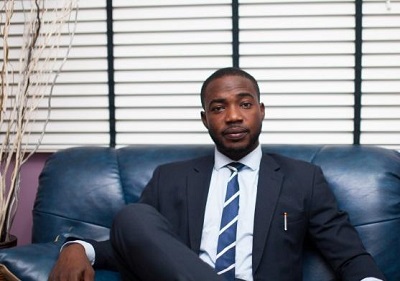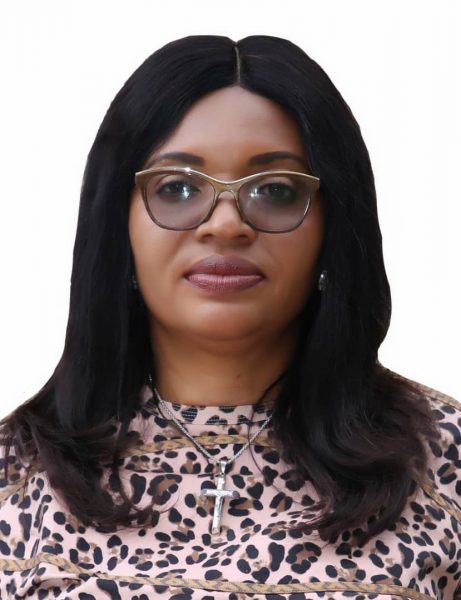How To Upgrade Nigerian Aviation Industry – Ronald Ajiboye

By Oyeniyi Iwakun
In this exclusive interview with MMS Plus, Engr. Ronald Opeyemi Ajiboye, an Aerospace Engineer and the CEO/Founder of McRonald AutoDrone Centre Ltd, one of the leading and foremost indigenous Aerospace & Automotive Company in Nigeria gives a revealing analysis and insight about the failings and challenges in the Nigerian Aviation industry. Excerpts:
How would you appraise the Nigerian Aviation industry?
Apparently, before looking at the Nigerian Aviation Industry, it is rational that I explain what “Aviation” as a concept means. For the purpose of this interview, I will say Aviation is the practice aspect of Aeronautics meanwhile Aeronautics itself deals with science and engineering of flights in the atmosphere of earth while Aerospace deals with both Aeronautical and Astronautical activities. Astronautics is the science and engineering of flights beyond the orbital level that is, the surrounding space. Practically, an example of Aerospace activities is rocketry.
The Nigerian Civil Aviation Authority (NCAA) is the agency responsible for monitoring aviation activities in Nigeria. Unlike before, NCAA has been doing well as the regulatory and compliance body in the Nigerian Aviation sector recently. However, if I am to rate them, we might have to set a benchmark with strategic KPIs for proper comparison.
Generally in engineering management, there are various ways of appraising performance of a sector but I will only select safety as a tool for measurement in this regards because of time. For aviation, we usually use the ‘State Safety Policy (SFP)’ which is generally used by countries globally as a system of rating safety standards. The SFP is an integrated set of regulations and activities aimed at improving aviation safety oversight audit program (USOAP) and Continuous Monitoring Approach (CMA) after such a state has achieved an Effective Implementation (EI) of over sixty percent (60%). It is required that states that have achieved 60% EI should fully be implemented by the year 2019. For Nigeria, we have achieved an EI of 67.36 % during the last audit in March 2016 which is above the average EI of 63.54%. Currently, Nigeria is on level 3 similarly to advanced countries like USA and UK. I am aware that proactive steps and action plans are already set as to reaching the utmost level 4 in few years to come according to an address by the NCAA Director General.
With the analysis above, I can confidently say that Nigeria is not lagging behind based on the safety standard we are striving to raise as contained in our action plan to achieve the fourth level. Nonetheless, there are setbacks we are experiencing in our aviation industry due to various challenges because this is not yet our best.
In a recent post on the Social media, you bemoaned the alarming rate of wrongdoings and joblessness among Nigerian Aviators. Why?
Yes! That’s another thing entirely, what I just discussed is our compliance level and management related activity where we seem to be doing better but when it comes to national carrier in Nigeria, I think we are totally backward. The reason for my lamentation is because it is highly ridiculous for things to be left to degenerate into this abysmal status when it can be properly positioned. I strongly detest allowing things go wrong when they can actually be done right. The question is, why do we derive pleasure in doing things wrongly?
In Nigeria today, when an airline advertises vacancies, a lot of people including Pilots, Aerospace engineers and others apply. When they go for interviews, the outcome would be that the employers had already hired some less qualified or persons that have studied unrelated Aviation courses like plant science and if possible Yoruba Science to show the level of decadence, simply because of their unwillingness to pay Nigerian experts. And if they recruit experts, it would be the expatriates (foreigners) who they even pay higher (this doesn’t imply that I am a racist) I am not against inviting Experts but why should a position be filled by a foreigner if a local can man the job?. At the end of the day, the only assignment they are given to carry out is a simple C-check.
I opine that, it isn’t fair enough for a parent to send his kid to school with a huge sum of money say, over sixty thousand dollars ($60,000) or forty thousand dollars $40,000 only to return to Nigeria, his father’s land and discover that there is no provision for him by the society. I need to ask if it was his father’s land to start with! Yet, the few available jobs are being given to the wrong persons on daily basis while the right persons are deprived.
Can we attribute the Nigerian Aviation sector’s dysfunctionality to the problems highlighted above?
Yes! To a large extent we can relate it to be a part but not totally. You see my brother, you cannot make a man understand something if his salary depends on not understanding it. I am going to be quite technical now; you cannot make a man understand his job when you are paying him for lack of knowledge. No, he won’t. The aircrafts stumbling here and there in Nigeria is a product of not putting the right people there because we have recorded more accidents due to human errors than any other. I doubt if in Nigeria there is any aircraft beyond 2012 model. In fact, Nigeria doesn’t have 2012 model, they are all older aircrafts. Whereas, there are indigenous experts and scholars who can join hands in creating synergy to reposition things in the Aviation sector. I am totally convinced that our local experts will perform excellently if they are given a chance compared to when you put an agricultural scientist in place of an Aeronautic Engineer to perform a similar job. They may have some good knowledge but trust me the space may not be properly filled in terms of efficiency and effectiveness. There are various standards in Aviation that should be met before you can allow people to work there. Ironically in Nigeria, Youth Service Corp members and interns are mostly hired and preferred to handle some jobs in various industries in other to cut cost by refusing to hire a full time, experienced and trained personnel. At the end of the day, the Corp member may not have studied any related course or acquired any relevant experience in the corresponding field. There is no way such a person can match a certified professional who was specifically trained for about four to five years with practical case studies before obtaining a license.
Sorry! Before we proceed, is there any difference between License and degree?
Of course, license is different from academic certifications. License is revocable which means it can be retrieved from you especially when you do something wrong, because it doesn’t fully belong to you unlike your degree which totally belongs to you for life irrespective of your wrong dealings.
Getting back to your previous question, I think it is part of the dysfunctionality we are experiencing because we are not getting the right people to do the job. Trained people should be allowed to do their jobs. That’s what I think. I read in a post sometimes ago that there are over ten thousand (10,000) unemployed pilots in India. I don’t know how true it is but I can tell you that in Nigeria I have over forty (40) mutual friends who are unemployed pilots. Some of them are now working as Taxi drivers with UBER. I am not saying it’s a bad thing but at least they could have done more in better atmospheres relatively.
Are there other root causes aside the highlighted ones above?
Definitely! The causative agents range from Individual to family, mentors (be it guardians, Imam or pastors, whoever you compel obedience from) and then the government. I think we can dissect it into so many angles. It is important we accept that everyone has a role to play. Let me make a simple analogy; In the first place, there is more supply than demand in the Nigerian Aviation sector. In Nigeria where we have over One hundred and eighty (170) million people meanwhile the numbers of participants in the sector is not directly sufficient to the current demands on ground. We still have lesser competition. Also, the industry is extremely corrupt, especially in terms of recruitment. Let me quickly relate one of my experiences as a Manager in a firm. In one of our recruitment exercises, we advertised a job on one of the renowned career website in Nigeria. The basic salary was thirty thousand (30,000) naira while there was going to be two (2%) percent commission base out of the person’s sales. To my astonishment, about thirteen thousand people applied and the career site filtered it automatically to five thousand people. Our human resource management department did their own refining and we were left with two hundred people to be called for the Interview. With the usual Nigerian attribute, somebody would have called me to seek favour for his daughter, friend or sibling.
Maybe if I was fair I could allow such a person to attend the interview but definitely cannot make him pass. The workers in that unit too would have wanted to favour their kinsmen and others. Probably among the two hundred applicants, about half of them would have been candidates influenced illegally while most of the qualified ones would have been filtered out along the line. Now tell me where the First class degree holder belongs when he must have been deprived at the onset. Most likely, an unqualified person would have succeeded in getting the job and nobody would tell you (as an applicant) the reasons you didn’t get the particular job at end of the whole exercise. Another question we may also ask is “how credible is this kind of recruitment process?” So, one problem associated to the high rate of unemployment in Nigeria is that the right people are not getting the job due to bad recruitment process.
Like I have also argued, another problem is that we have overrated education in Nigeria. At times, it is not even the wish of the Child in the first place to do what he is doing. His parents must have told him ‘’I want you to be the first Aerospace engineer in our community or village’’ the reason they seek loans and others. Will that change the price of garri in the market? They should have diverted the funds to sending others to school to do what they know how to do best rather than doing what their parents want them to do.
Upon graduation, tell me where you as a third class certificate holder will get a job where there are many first class Aerospace engineers, foreign degree holders who are yet to be employed? Disappointedly, as an Aerospace Engineer, if you approach a Bank for a job, you will be advised to seek refuge elsewhere based on the impression that you have studied a very lucrative course and they will as well be looking at the fact that they might not be able to afford a salary commensurable to your worth. To them, you shouldn’t be in the Banking industry which is the truth but they wouldn’t understand what you are facing. The course restricts you as it’s believed that you are only suitably qualified to work on the aircraft but not in other sectors unlike someone who did Business Management, Economics, and others. Meaning that if you don’t work at the airport or an Airline it will look as if your career has ended. Spending over Eighty (80) Million Naira abroad on piloting, Aerospace or Aeronautic Engineering doesn’t really make you an accomplished person. If after graduation you only get a lecturing job and by my calculations, you may never earn that eighty (80) million before you retire then why going into it? How will the loans be refunded? It is on this note that I opine that we shouldn’t overrate a course more than it’s supposed to be. We shouldn’t go for it because we think it appears big. It is germane to consider one’s strength and understand the economic outlook before any decision is made.
Is your analysis from an expert’s point of view or with the consideration of the Nigerian factor?
I am viewing it from a general perspective while taking into cognizance the Nigerian reality as an expert. I wouldn’t want to mix the two questions together but from the technical angle, I will relate it to the root causes as discussed earlier. It includes lack of national carrier, overeating of Education, and the environment which is the Nigerian factor itself. So pathetic that most of my friends are American and South African trained pilots, yet they are in Nigeria without a job. Now tell me, if an American and South African trained pilots cannot get a job in Nigeria (at least, we often believe they are better than the Nigerian trained) where will those Nigerian trained pilots get a job?
We must also understand that this experience is peculiar to other developing nations of the world. For instance, some weeks ago, I got some calls me from Uganda in East Africa, one from South Africa and the other from Zambia on related issues. The person from Zambia was specifically requesting for mentorship on the right career because it’s over two years he graduated and couldn’t get a job. I am trying to say, this is a global problem.
So, Nigeria has institutions where pilots are trained?
Of course, we do! In Nigeria, we have Colleges of Aviation in Zaria, Kaduna and Kwara states respectively.
In Nigeria of today, there is no longer a national carrier like before when we had Nigerian Airways, Virgin Airways and a couple of them. Maybe, if this had remained existent it would have been better even if some among the qualified ones are favoured than when there is nothing at all.
Again, not until recently that the Nigerian Civil Aviation Authority is doing better, in the past you don’t even know the procedure to follow to get your Aircraft Maintenance Engineer License (AME). There is no Standard Operation Procedure (SOP) because we haven’t acknowledged it. The rules keep changing.
Recently, my team met with the Minister of science and Technology in Abuja and he invited us for a display at Eagles Square during the science and technology exhibition. Impressionably, I saw a lot of brains there but guess what, the person who came out as the overall best was only given one million naira. I felt really bad because this money will not be enough for him to develop his idea. He needs better support so; I had to intervene in my own little way as a young man by initiating a partnership with him.
You can Imagine someone who had done creditably well by building a nice car and the best federal government could do was to give him one million naira whereas the winner of Big Brother Naija in South Africa was given twenty-five (25) million naira with other incentives. We must understand that if we don’t value, recognize and motivate people with knowledge (which is the bedrock of change and innovation), we are going nowhere in Nigeria.
How do you think this problems can be ameliorated?
Although it might look difficult to change this mentality but we can take a case study of Lagos when the former governor Babatunde Fashola decided to change the face of Lagos. He did a lot of public relations through the media with the slogan “eko o ni baje”, “Lagos must be clean” and another policy called the spirit of Lagos that even the “agberos” touts keyed into the campaign and implementation. I think if this kind of awareness can go steadily for about twenty years throughout the country, any child that is born within this period will imbibe the right values and culture naturally. The reason we behave in this manner is because we are born into it and has become internalized as our natural habit. It’s not really our fault. I am sure if we maintain this strategy for the next twenty years, our society will transform for better
You talked about starting a campaign against all the highlighted problems especially overrating of education, gender, religion and tribe. How do you intend to do that?
Yes! As a public speaker, I have been educating people in my previous presentations against overrating of religion, tribe and education ever since I identified them as major problems in Nigeria. I have done some campaigns in the past that made waves and I want to make it global this time around.
I will be leveraging on my little popularity and connections (though I am not so famous), partner with international organizations and people of compatible ideology including women.
I have made contacts with some media houses and some of them are ready to work with me. Social media would also be a very good tool for the campaign and I will be sponsoring it except I have people come on-board because we will be embarking on massive awareness to let people know what is right.
This is the way I am hoping to achieve all these because I have come to influence people in the right direction and that is what I am living my life for.
On a final note sir, what’s your advice to Nigerians?
If we are given the right education (not an academic school but mental exposure) from the beginning then I think people will be guided and our society will be better.
We are too much indulged in religious activities that it got us distracted and carried away. I am not saying we shouldn’t pray but must get the right things done in the right manner because somethings doesn’t even require prayers but strategies even if prayer is capable of solving all things.
We must stop operating the kind of educational system that makes people think only titled professionals like lawyers, doctors, and engineers will make it. Those in the “unprofessional fields ’’ are making more waves in the labour market.
Gender discrimination must stop and we must realize that what a man can do, a woman can also do. I have met ladies who have performed exceptionally well as managers and Chief Executive Officers (CEOs) than their men counterparts. So ladies should be encouraged.
Also, we must downplay tribalism. Not all from Ilorin are Muslims, not all from Imo are Christians neither is everybody from Ekiti brilliant. So the tribe or ethnic group doesn’t matter. Your heritage doesn’t fully determine your identity.
If we can set all these apart, then we are good to forge ahead.








This guy is very intelligent. He is my mentor
WOW! I know this man! Ronal Ajiboye was one of my best students. Being his professor I noticed his passion for studying design principles in aviation. Also he dealt a lot with students’ extracurricular activities, organizing good useful events. And after years expressed in very comprehensive way his analysis of general approach in achieving goals in education like getting degrees and further licensing deserves highest marks.